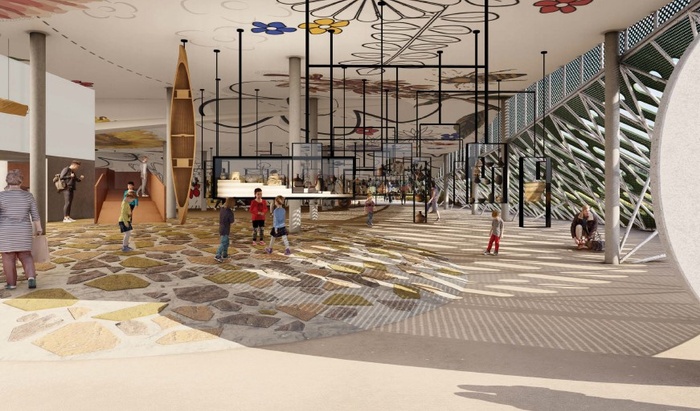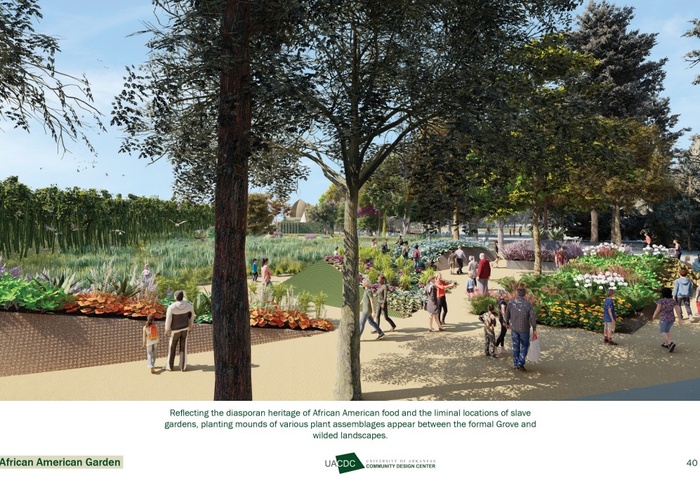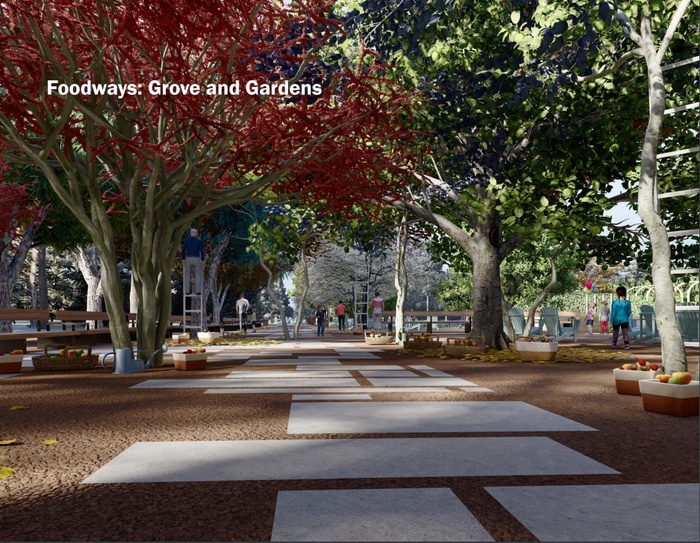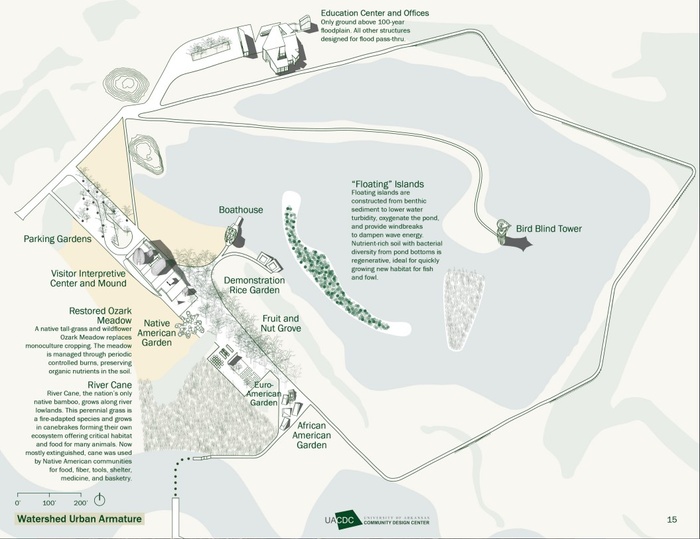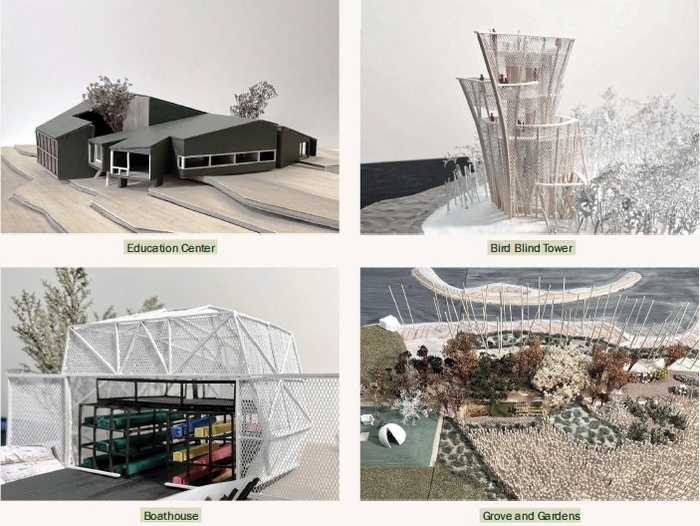The Watershed Conservation Resource Center (WCRC), the City of Fayetteville purchased 98 acres and with the help of Beaver Water District, all 3 entities purchased an additional 200+-acre property along Dead Horse Mountain Road and the West Fork White River (WFWR), to protect, conserve and restore the wetlands, floodplain, and other natural features, all within the Fayetteville, Arkansas city limits.
Phase I will establish The River Institute’s space adjacent to the wetlands, near the WFWR, and consist of the following elements:
-
A community space located adjacent to the WFWR in Fayetteville, AR, with indoor and outdoor classrooms to support public short courses on:
- Streams, floodplains, wetlands, prairies, and riparian conservation and restoration
- Native plant identification and use for residents & businesses
- Invasive plant removal techniques and native replacements
- Residential stormwater solutions
- A butterfly and native plant greenhouse to propagate native plants for stream and wetland restoration projects
- An innovative space to house the WCRC to support river assessment and restoration
- Support for needed ongoing monitoring and maintenance of existing river restoration sites
